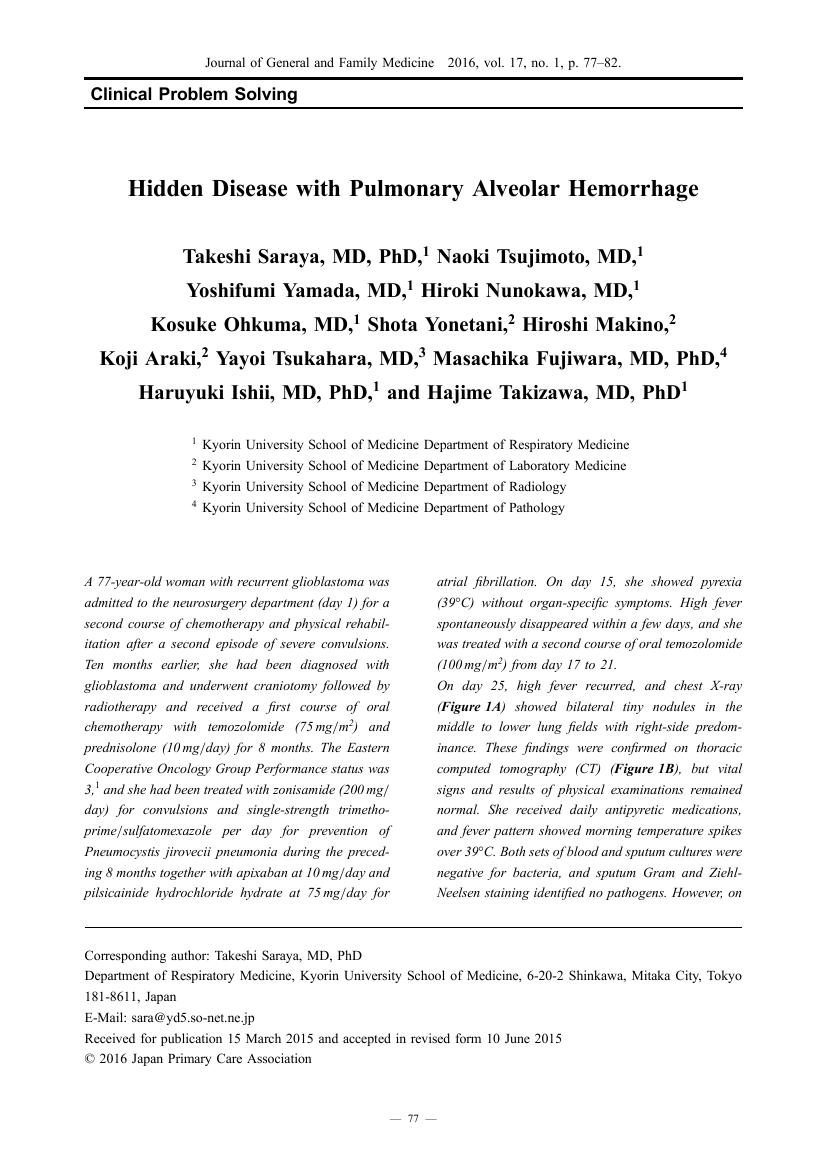- 著者
- Yoshifumi Yamada Junichi Uchida Hisa Izumi Yoko Tsukamoto Gaku Inoue Yuichi Watanabe Junichiro Irie Satoru Yamada
- 出版者
- The Japanese Society of Internal Medicine
- 雑誌
- Internal Medicine (ISSN:09182918)
- 巻号頁・発行日
- vol.53, no.1, pp.13-19, 2014 (Released:2014-01-01)
- 参考文献数
- 26
- 被引用文献数
- 7 92
Objective Although caloric restriction is a widely used intervention to reduce body weight and insulin resistance, many patients are unable to comply with such dietary therapy for long periods. The clinical effectiveness of low-carbohydrate diets was recently described in a position statement of Diabetes UK and a scientific review conducted by the American Diabetes Association. However, randomised trials of dietary interventions in Japanese patients with type 2 diabetes are scarce. Therefore, the aim of this study was to examine the effects of a non-calorie-restricted, low-carbohydrate diet in Japanese patients unable to adhere to a calorie-restricted diet. Methods The enrolled patients were randomly allocated to receive a conventional calorie-restricted diet or low-carbohydrate diet. The patients received consultations every two months from a registered dietician for six months. We compared the effects of the two dietary interventions on glycaemic control and metabolic profiles. Results The HbA1c levels decreased significantly from baseline to six months in the low-carbohydrate diet group (baseline 7.6±0.4%, six months 7.0±0.7%, p=0.03) but not in the calorie-restricted group (baseline 7.7±0.6%, six months 7.5±1.0%, n.s.), (between-group comparison, p=0.03). The patients in the former group also experienced improvements in their triglyceride levels, without experiencing any major adverse effects or a decline in the quality of life. Conclusion Our findings suggest that a low-carbohydrate diet is effective in lowering the HbA1c and triglyceride levels in patients with type 2 diabetes who are unable to adhere to a calorie-restricted diet.
- 著者
- Takeshi Saraya Naoki Tsujimoto Yoshifumi Yamada Hiroki Nunokawa Kosuke Ohkuma Shota Yonetani Hiroshi Makino Koji Araki Yayoi Tsukahara Masachika Fujiwara Haruyuki Ishii Hajime Takizawa
- 出版者
- 日本プライマリ・ケア連合学会
- 雑誌
- Journal of General and Family Medicine (ISSN:21896577)
- 巻号頁・発行日
- vol.17, no.1, pp.77-82, 2016-03-18 (Released:2016-03-25)
- 参考文献数
- 14
- 被引用文献数
- 1
